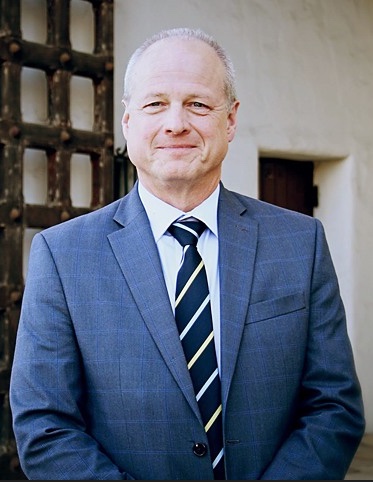Santa Barbara’s New DA Gets $500,000 for Racial Disparity Analytics
Savrnoch Brought a Collaborative Approach to Supes but Some Disagreed over Consultant

Not only did new District Attorney John Savrnoch get the $500,000 he was asking from the county supervisors, but he was also all but kissed on both cheeks for what they described as his refreshingly open and collaborative approach. The money is to hire a data analytics consultant to determine whether county prosecutors were filing stiffer charges and securing tougher sentences against people of color.
Several supervisors — not to mention Public Defender Tracy Macuga — expressed doubt about the consultant to be hired. George D’Angelo of Sicuro Data Analytics earned a PhD in economics from UCSB and frequently testifies as an expert witness on behalf of law enforcement. Public Defender Macuga testified it was “a pleasure” to be able to endorse Savrnoch’s request, although she still expressed misgivings about D’Angelo. By contrast, Macuga lead the fight against the funding — and D’Angelo — when Savrnoch’s predecessor, Joyce Dudley, brought the matter before the board early last December, causing the matter to be postponed. Dudley and Macuga famously did not see eye to eye. This Tuesday’s optics offered a stark contrast and a promise of smoother working relations.
Supervisor Steve Lavagnino congratulated Savrnoch, saying he “crushed a home run” at his first at-bat in front of the supervisors. He praised Savrnoch for setting the right tone and for “building camaraderie” among other members of the criminal justice community. Supervisor Bob Nelson, a self-described “data nerd,” expressed relief at Savrnoch’s cooperative approach, noting that “other elected officials have not been so cooperative.”
At the same meeting, criminal justice reform activists with the League of Women Voters and Clergy and Laity United for Economic Justice made the first of many presentations to come, lobbying the supervisors to reduce the number of inmates sentenced to county jail for non-violent minor misdemeanor offenses. They claimed that one-third of the inmates now in County Jail fit that bill. More money and effort needed to be spent diverting people with mental health and addiction issues into treatment, they argued. “Help, not handcuffs,” they said, and “Treatment beds, not jail cells.” They highlighted a consultant’s report indicating that as many as 250 fewer people could be kept out of jail — and placed into programs — without compromising public safety. Plans to renovate the Main Jail, they said, would be prohibitively expensive. The $81,000 it costs to lock prisoners for a year could be better spent, they argued, creating a live data dashboard alerting law enforcement officials of where the available beds were at any given time. “If you don’t know what’s available,” one speaker stated, “you can’t know where to take them.”
The Main Jail renovation is expected to cost in the ballpark of $52 million, the advocates argued. The supervisors are scheduled to sink their teeth into this issue later in April.




You must be logged in to post a comment.